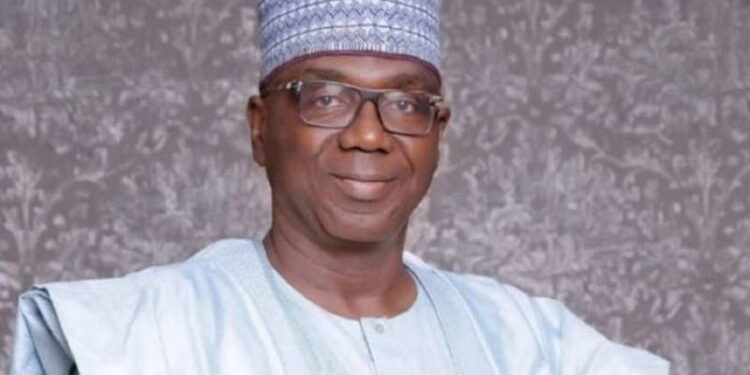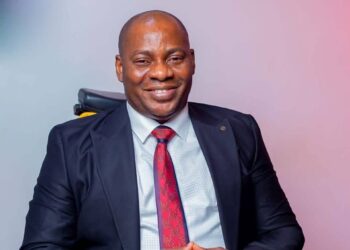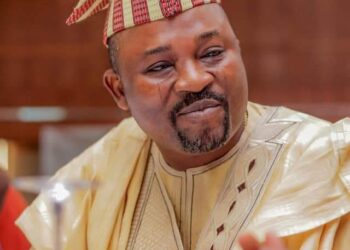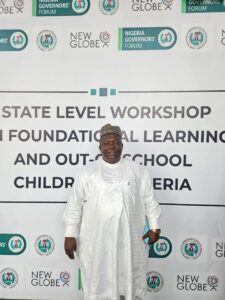 <img src="http://naija24hrs.com/wp-content/uploads/2025/08/IMG-20250810-WA0451-225×300.jpg" alt="" width="225" height="300" class="alignright size-medium
<img src="http://naija24hrs.com/wp-content/uploads/2025/08/IMG-20250810-WA0451-225×300.jpg" alt="" width="225" height="300" class="alignright size-medium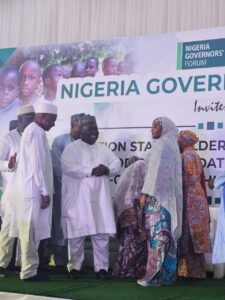
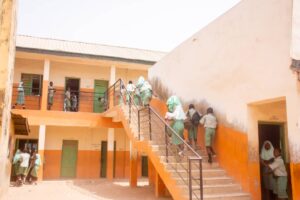 wp-image-33570″ />
wp-image-33570″ />

As Nigeria grapples with the challenge of out-of-school children—estimated to be among the highest globally—recent interventions led by the Universal Basic Education Commission (UBEC) and the Nigeria Governors’ Forum (NGF) offer renewed hope. At the center of this momentum is Governor Abdulrahman Abdulrazaq of Kwara State, whose leadership as NGF Chairman is setting a new national tone on foundational education.
Penultimate week, the NGF in collaboration with UBEC and NEWGLOBE convened a multi-stakeholders dialogue in Abuja focusing on foundational learning and strategies to combat the out-of-school children crisis. Commissioners of Education and Chairpersons of State Universal Basic Education Boards (SUBEBs) were present to discuss reforms and implementation pathways. The gathering reaffirmed the need for stronger state-level ownership and collaborative policymaking.
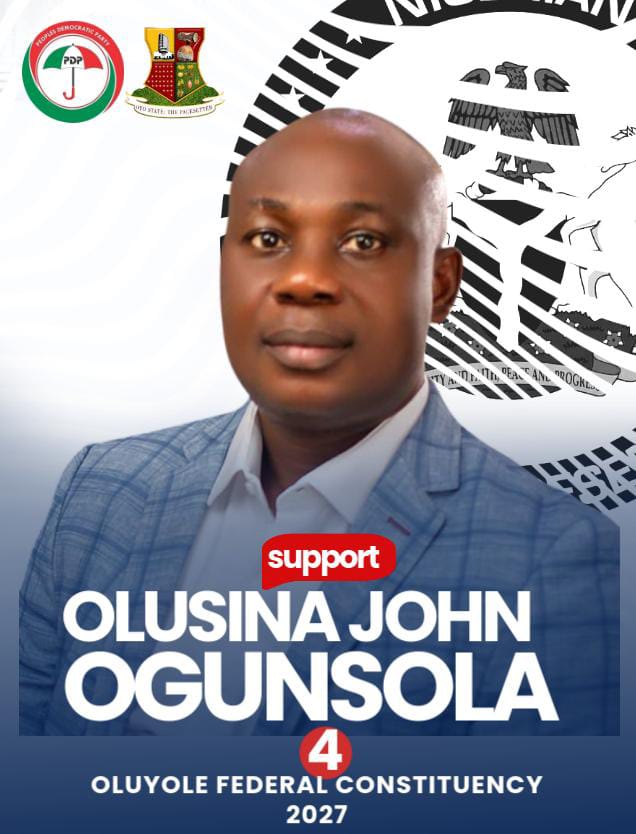
Kwara State represented by the Hon Commissioner of Education, Dr Lawal Olohungbebe and the Executive Chairman of Kwara State Universal Basic Education Board, Prof Shehu Raheem Adaramaja presents a model of what focused leadership and fiscal discipline can achieve in basic education. According to their presentation, upon assumption of office as the Executive Governor of Kwara State , Mallam AbdulRahaman Abdulrazaq CON moved swiftly to pay backlogs of UBEC counterpart funding, allowing the state to access over ₦14.2 billion in federal matching grants for the years 2014-2019 . This intervention reversed Kwara’s prior blacklisting from UBEC funding and unlocked a cascade of basic education infrastructure projects across the state.
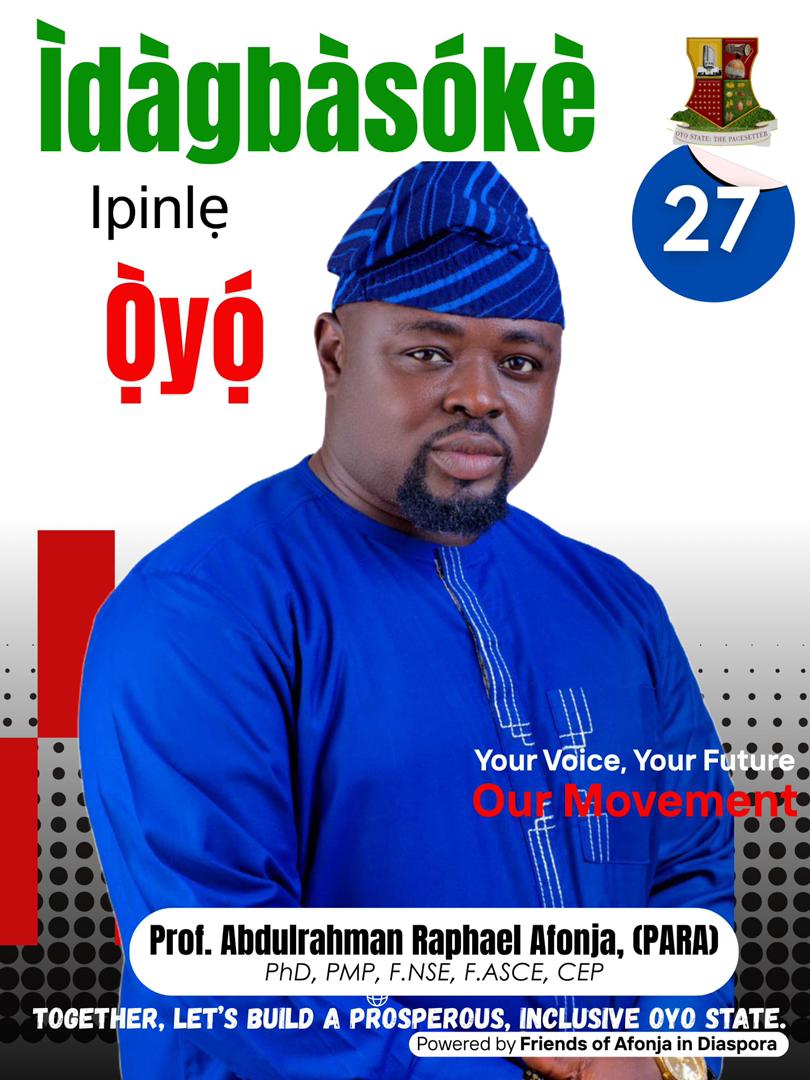

Through the Prof. Shehu Adaramaja-led Kwara SUBEB, over 600 schools have been renovated or newly constructed across the 16 local government areas. Classrooms have been furnished with pupils and teachers furniture, perimeter fences erected, boreholes sunk, Digital literacy centres established in 38 centres and WASH facilities provided across the 193 political wards of the state, with clear attention to equity and rural inclusion. These upgrades are impacting both teaching and learning environments in meaningful ways.
In addition to infrastructure, Kwara has tackled the human resource challenge head-on. Between 2021 and 2025, the state recruited over 6,400 new teaching and non-teaching staff, with an emphasis on STEM subjects. The recent recruitment exercise adopted community-based recruitment approach, where qualified NCE and Bachelor degrees in education from various communities were recruited to teach in their localities. All recruited staff signed performance bonds, demonstrating a commitment to accountability and diligence performance at duty.

Another bright spot is the KwaraLEARN programme—an ambitious education technology initiative that has digitized classroom management in over 1,770 public schools. With real-time monitoring, teacher coaching, and structured lesson plans, over 620,000 pupils now benefit from a more consistent and effective learning experience.

Mallam AbdulRahaman Abdulrazaq gave priority attention to teachers motivation and encouragements. He largely demonstrated this in prompt payment of salaries, promotion of teaching and non teaching staff of the State Basic Education Board, enhance capacity building with significant attention to technology education, modern pedagogical trainings, classrooms management techniques, foundational literacy and numeracy skills and other impactful workshops. Early results show gains in literacy and numeracy scores, attendance, and classroom engagement.
Kwara has also gone beyond the school walls. Earlier this year, a targeted enrollment drive brought over 2,300 out-of-school children into classrooms. These efforts were especially focused on nomadic communities, Qur’anic school pupils, street children, and underserved areas often missed in national data. Plans are also underway to build 75 new schools in remote areas to further reduce access barriers.
Perhaps the most telling endorsement of Kwara’s progress came in May 2025 when UBEC’s North-Central Director, Elder Abalaka described the state as “a pacesetter in compliance.” This reflects not just infrastructural output but the state’s commitment to due process, transparency, and strategic alignment with federal education goals.
Governor Abdulrazaq’s leadership at the NGF is crucial to replicating this progress nationwide. His advocacy for coordinated policies, timely funding, and inclusive education models is influencing how states approach their UBE responsibilities. The recent dialogue in Abuja underscored the need for such synergy.
As Nigeria intensifies efforts to implement a new national strategy on foundational learning, it is clear that the states must lead from the front. Kwara State’s success story shows that with the right blend of policy, leadership, and stakeholder engagement, progress is not just possible—it is sustainable.
The crisis of out-of-school children and weak foundational education has persisted for too long. But if more states follow the Kwara example under Governor Abdulrazaq’s NGF-backed leadership, the foundation of Nigeria’s future can be salvaged and secured.
In this regard, what is happening in Kwara should not just be applauded—it should be emulated. The real task now is to replicate such bold governance across every corner of the country.
Dr. Olufemi A. Adetola writes from No 18, Adelodun Road, GRA, Ilorin
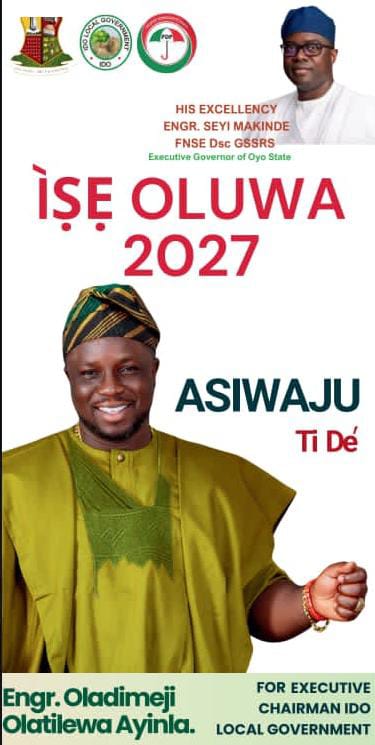

You can get every of our news as soon as they drop on WhatsApp ...To get all news updates, Join our WhatsApp Group (Click Here)



